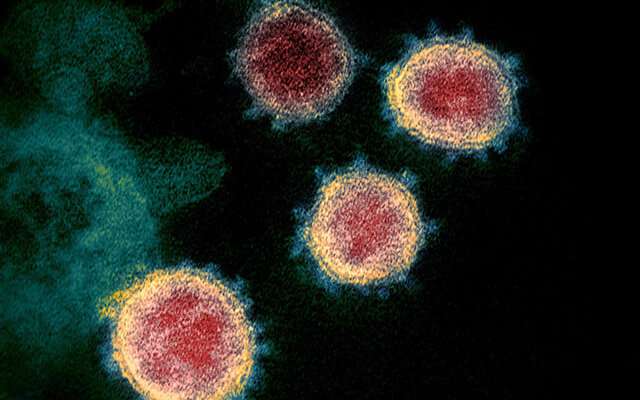This article has been reviewed according to Science X's editorial process and policies. Editors have highlighted the following attributes while ensuring the content's credibility:
fact-checked
trusted source
proofread
Portable laboratory device can detect SARS-CoV-2

A new study has demonstrated rapid and sensitive on-site detection of SARS-CoV-2 RNA from environmental surfaces using a portable laboratory device. The study was published in Microbiology Spectrum.
"Our findings hold promising implications for scenarios where access to testing laboratories is challenging, such as in cruise ships, international travel, remote islands and tourist destinations," said lead study author Kouichi Kitamura, Ph.D., National Institute of Infectious Diseases, Tokyo, Japan.
"Our developed methods could be utilized for point-of-care testing and sensitivity-demanding applications like risk assessment. From a One Health perspective, ensuring food hygiene in forestry, agriculture, aquaculture and livestock production to distribution is vital. However, these industries often operate far from commercial testing labs, underscoring the importance of establishing on-site detection methods."
The researchers conducted this study to develop an on-site virus detection method, mainly for SARS-CoV-2, for environmental surfaces, to monitor pathogens using portable devices without access to laboratory settings. While rapid detection methods like antigen tests and loop-mediated isothermal amplification (LAMP) assay are available as point-of-care testing solutions, PCR is often considered the gold standard for pathogen detection with high sensitivity and specificity.
"Portable PCR devices allow us to leverage established PCR conditions for detecting various pathogens, making them highly valuable," Kitamura said.
The researchers envisioned detecting viruses present on commonly touched surfaces like doorknobs and tabletops. They conducted experiments by dropping non-infectious viral particles, not limited to SARS-CoV-2, onto several materials such as plastic and stainless steel, then let them dry and collected the particles from surfaces with swabs. They then explored methods to detect the viruses using only portable equipment.
Using commercially available swab kits and a portable PCR device, the researchers demonstrated the feasibility of rapid on-site virus detection. Additionally, they developed a method to extract viral RNA using another portable experimental device (a compact centrifuge), enabling highly sensitive on-site detection even for very small quantities of viruses.
"This study presents an end-to-end on-site virus detection method, covering sample collection to PCR testing," Kitamura said. "We encourage the adoption of the testing approach demonstrated in this research, especially in situations requiring high-sensitivity rapid diagnostics in contexts where access to testing laboratories is limited."
More information: Kouichi Kitamura et al, Microbiology Spectrum (2023), DOI: 10.1128/spectrum.00456-23. doi.org/10.1128/spectrum.00456-23


















